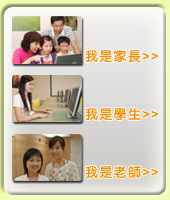|
2012 年 6 月 : The Facebook Problem
Hi I am Amy and I am a Facebook addict. I wish that Facebook had never existed, that I had never joined. I wish that I could forever delete my profile and never log on again. I wish that Mark Zuckerberg had become a lawyer or doctor like tons of other Harvard kids, and stayed away from entrepreneurship. But let’s be realistic, it’s not going to happen because it’s happening.
Before Facebook I used to be a full-fledged print junkie. For a while I religiously read and - at the risk of being a fire hazard - collected copies of The New Yorker and Reader’s Digest. Those were the days when people still read -- I mean really read, not just “status updates,” “news feeds” and counted how many pokes they received.
But waxing nostalgia is normal since I came of age during the time of word processors and land lines. Back then reading was not a chore, but an enjoyment if not entertainment. In those pre-Facebook days, my friends and I made up stories, skits, skipped rocks and rope, rode bikes, painted and sold lemonade.
We as a society had less, ate less, and we weighed less and in many ways worried less. The world moved slower but looking back I don’t feel like I missed out on anything especially friendships. I mean face to face friendships where you would meet a friend at a mall and catch up over a coffee. And over coffee you’d be focused on your friend and what they were saying instead of snapping pictures of the food with your smart phone, and checking your status updates.
In the age of Facebook, one can argue that these technologies and networks have made communication easier. And it’s true in the same way that the microwave liberated many a housewife. Ease and access to information can be a wonderful thing, but depending upon the attitude and behavior of the users. While many wonderful technologies have surfaced since my childhood, the flipside is that the habits associated with these new ways of communication are making things worse not better.
As Silicon Valley and Wall Street celebrate Facebook’s $16 billion IPO, here is the reality of what Facebook has wrought upon us as a society.
Many young people admit to spending several hours online every day, not to read newspapers, write e-mails to friends and family, collect information for a project but to check Facebook, Twitter and play games.
“What do you do once you are online?” I once asked a group of high school students.
“Play Farmville,” one said.
“See how many pokes I got for an update,” another said.
“See about changes in relationship statuses,” a third said.
“Check out my friends photos,” said the fourth.
And oh on the topic of photos, one would think that with technologies fast rise it would be an excellent opportunity for aspiring photojournalists. Not, well, exactly. The majority of my friends and I are sharing pictures of what we have eaten.
A friend cleverly shared an unofficial rule the other day in these fast-paced photo taking times, “Don’t take pictures of your food, your cat, or your feet, unless they are truly cool.” And there is also a little thing called privacy. How many people have used their childrens’ photos as their profile picture on Facebook?
True, this is a personal choice, and don’t get me wrong -- information and social networks can be a wonderful thing if one controls their behavior or uses these tools thoughtfully. Facebook has the power to promote many a small business, promote a cause, keep Silicon Valley’s economy afloat, and it certainly has helped me stay connected with pre-college friends.
But the danger is very real when it is a platform for gossip, a playing field for comparison games, and as my 89-year-old grandmother says a “time sucker.” “Are people doing this (Facebook) during work? If so it’s a waste of time, it’s just a lot of gossiping…how do you get any work done?” she asks.
In the end the person who stands to gain the most from Facebook is Mr. Zuckerberg. His brilliance is not in the technology itself but in understanding that in the end people crave the basics of being liked, being respected, being appreciated and being listened to.
Facebook gives people the façade that those are being achieved, but at the end of the day it is eating away at the fabric of relationships, brain cells and time (since we all have 24 hours a day). It is a play on a person’s psyche but it doesn’t have to be that way.
In the end, I admire the rare friend who has turned a cold shoulder to Facebook.
So why don’t I do the same? Because I’m still hopelessly hooked.
I once tried to delete my account and a wonderful thing happened, albeit briefly. Several friends reached out to me to ask what happened.
“Are you okay, your posts have disappeared,” a friend texted me. “Call me and let’s talk, let’s get coffee sometime.” The response was a slant of sun amidst the landscape of pokes and likes. My friend and I connected, finally. #
作 者 :吳筱玫
(香港樹仁大學新聞與傳播學系講師)
|



